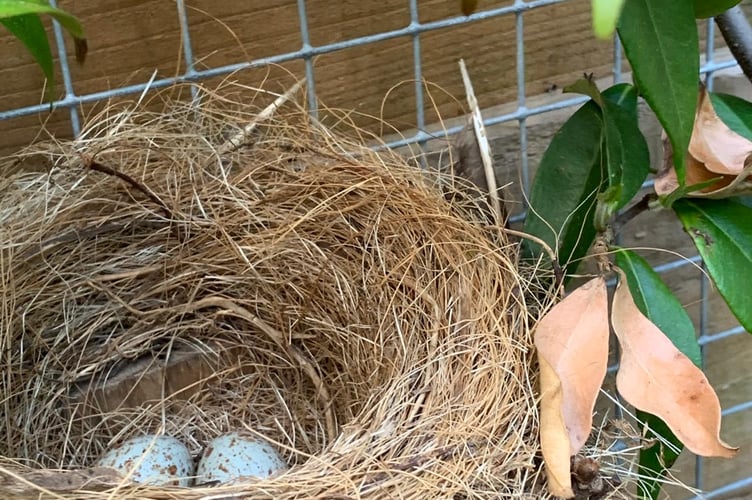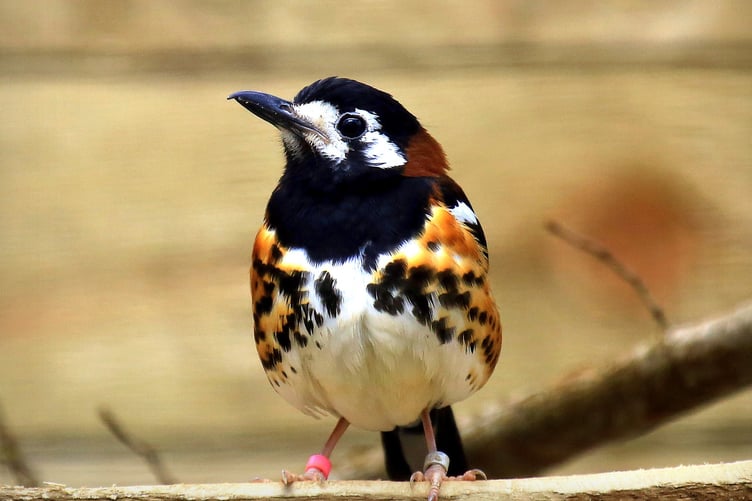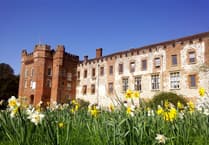Birdworld is celebrating its latest conservation success, centred around one of the world’s most elusive and endangered little songbirds.
The UK’s largest bird park, home to more than 1,000 birds across 181 species, has successfully bred a number of chestnut-backed thrush chicks – tiny, forest-dwelling songbirds weighing less than 50g (0.1lbs).

Native to Indonesia, the chestnut-backed thrush (Geokichla dohertyi) is already extinct on the island of Lombok, near Bali, and is becoming increasingly rare across the southern Lesser Sunda Islands, due to habitat loss, illegal trapping for the songbird trade, and introduced predators have put intense pressure on dwindling populations.
Coordinated through the European Ex-situ Programme (EEP), Birdworld has a longstanding track record with this striking species – recognisable by their warm chestnut plumage, bold black-and-white facial markings, and elusive forest behaviour.
A previous female raised at the park produced an astonishing nine chicks in a single year, before sadly passing away in 2024 – a major setback for Birdworld’s involvement in the programme.

Determined to continue their efforts, the park introduced a new female, Gilly, who had been raised at Edinburgh Zoo but was unable to find a suitable mate there.
After joining Birdworld’s resident male, the pair successfully fledged two healthy chicks in May 2025.
Thankfully, Gilly went on to incubate a second clutch, and keepers have now confirmed the sound of chicks under her, signalling yet another promising step forward for this vulnerable species.
“Gilly has certainly kept us on our toes,” said Christopher Benjamin Kent, senior keeper at Birdworld.
“Back in spring of this year, she began to carefully craft what looked like the perfect nest – but after waiting patiently, nothing happened.
“We waited, and waited, and hoped that no news meant it was being used as a decoy nest to protect the real one. However, to gently encourage Gilly and her partner to try again, we dismantled the empty nest to try and trigger new nesting behaviours.”
The plan worked, and not long after, the pair constructed a second nest hidden deep in the vegetation.
“The rest, they say, is history,” said Mr Kent.
Since launching the Birdworld Conservation Fund in 2008, the park has raised over £900,000 towards initiatives that protect birdlife in the UK and across the world.
“This is a hugely exciting time for Birdworld, as we draw nearer to the completion of the first phase of our multi-million-pound redevelopment,” said Matt Hill, director of Birdworld.
“You may have seen that we are improving areas of the park and introducing exciting indoor and outdoor play for children, but we will also be strengthening our commitment to our conservation efforts – enhancing our bird habitats, prioritising support for endangered species, expanding our breeding programmes and providing continued professional development for our team.”
In addition, Birdworld is also a partner on a number of global initiatives, including reforestation, anti-poaching, and habitat restoration.
It is also enhancing educational outreach through schools and digital platforms, focusing on working with local communities to encourage participation in restoration and citizen science projects.
.png?width=209&height=140&crop=209:145,smart&quality=75)


.jpg?width=209&height=140&crop=209:145,smart&quality=75)
Comments
This article has no comments yet. Be the first to leave a comment.